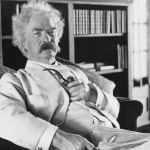Sunday is a perfect day to pay a visit to Auster’s museum of ordinary where magic lies in the subtlety of one’s observations.
It would be good to point out that this museum is build out of fragments, and is based on miniscule, concrete pieces of life, which are then connected to form a firm whole. A whole which shows all the beauty in our everyday experiences that may seem so ordinary to us that we do not even pay attention to them. We just go along, day in, day out. However, if we stop to think about our life, we’ll realize that it could be written down in the form of autobiographical fragments, that is, if we where to share our deepest thoughts with anyone but ourselves. This is what Auster did in the majestic Winter Journal, which might sound as entailing solely cold and reserved elements, but is in fact the complete opposite.
In our Auster museum there is a whole room dedicated to this book. Its walls are so high that upon entering you have this feeling that you can reach the sky if you just stand on your toes. It is very serene, calm, and peaceful. A mellow music plays in the background while you tiptoe around the room paying great respect to the words that are written on the walls. Auster has opened up himself in this one, he is right there in front of his visitors and readers. He tells us things that are usually shared only with the wind, for that’s how deep and personal they are. One wall is covered with his fears and doubts and times when he took things for granted or did something that he deeply regrets, for instance, that time when he crashed his car with both his wife and daughter inside. Auster is human, this is what the room in his museum is trying to communicate to us. It also tells us not be afraid of being human, that would be absurd, for it is the essence of one’s soul.

He is one of those rare writers whose style is really dear to me. I’ve always admired him for his bravery when it comes to being ordinary. There is nothing spectacular in his museum, nothing that would shock or make you want to leave its doors and never come back. Conversely, his warm writing voice provides comfort and shelter whenever you need to be anchored someplace apart from your own heart. The museum is covered with his fingertips, which will never fade. This is how he speaks to his visitors, always pointing out that life is difficult and painful and it might tear you apart sometimes. It claws at you, shouts, pushes you away, but there is one way to come out of this situation as a victor and that is by not being afraid of feeling fear creeping in your soul. Be aware of it for it is the only way to conquer it.
“By the age of fifty, most of us are haunted by ghosts. They live inside us and we spend as much time talking to the dead as to the living. It’s hard for a young person to understand this. It’s not that a twenty year old doesn’t know he’s going to die, but it’s the loss of others that so profoundly affects an older person—and you can’t know what that accumulation of losses is going to do to you until you experience it yourself. Life is so short, so fragile, so mystifying. After all, how many people do we actually love in the course of a lifetime? Just a few, a tiny few. When most of them are gone, the map of your inner world changes. As my friend George Oppen once said to me about getting old: what a strange thing to happen to a little boy.”
– Paul Auster in an interview for The Paris Review
By leading a conversation with his former self, Auster builds a book out of a heap of fragments. Winter Journal, our museum for today, really is a book like no other, connecting the past with the present, maintaining a firm faith for the future. We are all fragmented, trying to make a meaningful whole out of ourselves. That is where reading comes handy because, as Auster says:
“A novel is the only place in the world where two strangers can meet on terms of absolute intimacy. The reader and the writer make the book together. No other art can do that. No other art can capture the essential inwardness of human life.”
It is precisely this that I’ve been doing lately. Just talking to Auster when I need an anchor. It is always great fun, regardless of the genre I choose to delve into for there is a remarkable range when it comes to his work: novels, plays, essays, translations, poems, songs, screenplays… I just pick something up from the heap and we start talking to each other. He is always here, in his museum, sharing the fragments of his soul with those who respect his work. He sits in the corner and writes by hand, which is what he has always done, as long as he remembers. He takes breaks to observe his visitors and he always chuckles at their surprise upon entering this warm, blue museum into which he has poured both his heart and soul.
I always opt to conclude my visit with a conversation about one of his favourite projects, The National Story Project, which fully explains why he finds the ordinary so fascinating:
“I thought it was a brilliant idea. NPR has millions of listeners around the country. If enough contributions came in, I felt we would be able to form a little museum of American reality. People were free to write about anything they wanted. Big things and little things, comic things and tragic things. The only rules were that the pieces had to be short—no more than two or three pages—and they had to be true. (…) I think I had several motives. The most important one was curiosity. I wanted to find out if other people had lived through the same sorts of experiences that I had. Was I some kind of freak or was reality truly as strange and incomprehensible as I thought it was? With such a large reservoir of possibilities to draw from, the project could take on the dimensions of a genuine philosophical experiment.”
He takes his notebook and tells me that a sunny Sunday in winter should not be spent indoors, so we part. I make my way someplace else, while he stays in his museum, waiting for another visit. This just makes me think how reading Auster’s oeuvre should be an act equivalent to sipping coffee – performed slowly, with great pleasure and patience. A true daily ritual!
- Editor’s Picks: Celebrating Women in Translation Month - August 3, 2022
- Literary Travelogue: An Interview With Jelena Vukicevic (Visibaba) - May 23, 2022
- Special Feature: Review of ON BEING ILL (Uitgeverij HetMoet) - February 8, 2022



